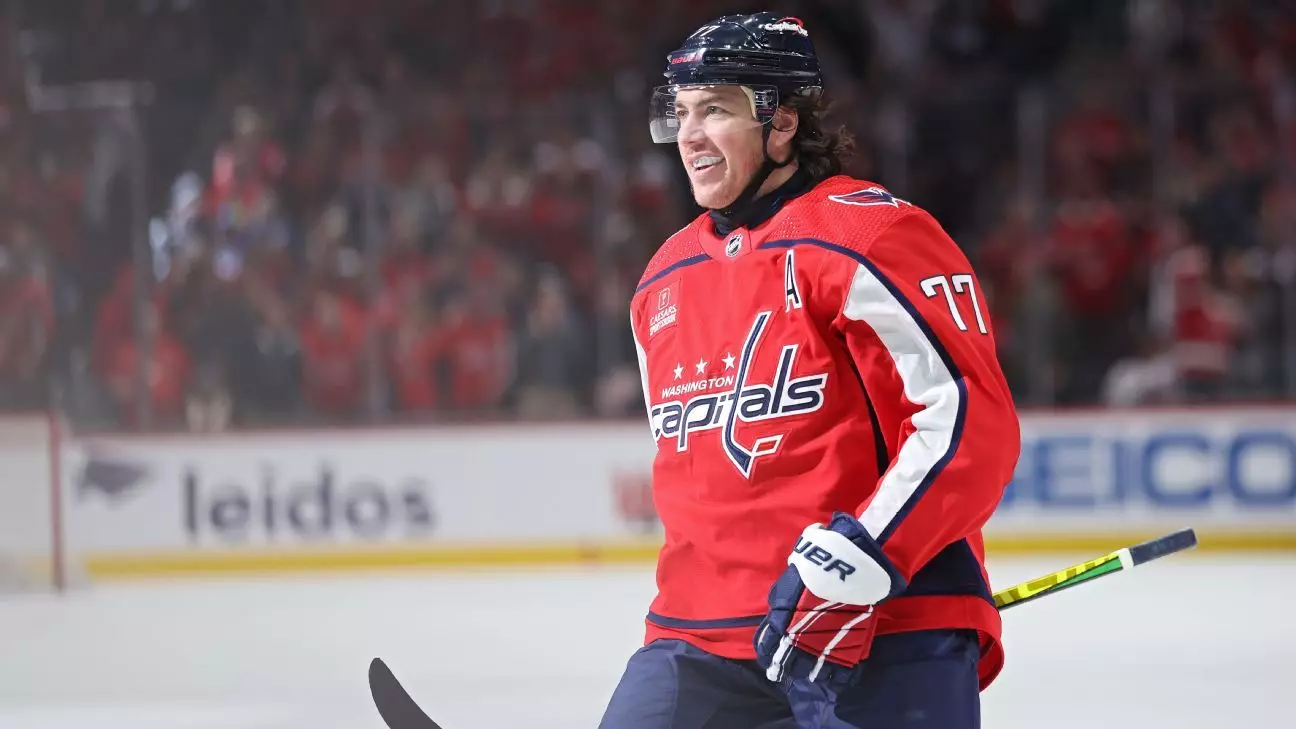In the world of professional sports, few narratives are as harrowing as the story of an athlete grappling with chronic injuries. For T.J. Oshie, a prominent forward for the Washington Capitals, this reality has become all too palpable. The Capitals officially announced that Oshie will be placed on long-term injured reserve for the 2024-25 NHL season, a decision stemming from a stubborn and chronic back issue that has plagued him for years. This unfortunate development follows a medical evaluation at the onset of the Capitals’ training camp, marking a pivotal moment in Oshie’s career.
Oshie’s health struggles are not merely a blip on the radar; they represent a significant chapter in his professional narrative. For years, he has faced the challenges of inconsistent play due to injuries, which have relegated him to sitting out various games. The thorough examination conducted during training camp revealed that the lingering back injury had reached a critical stage—one that left both Oshie and the Capitals believing it was time for him to step away from the ice, at least temporarily.
Oshie, now 37, didn’t shy away from the emotional turmoil that accompanies such an announcement. He issued a statement expressing gratitude to fans and acknowledging the strain that his condition has placed on his family, his teammates, and himself. Playing only 52 games in the previous season and failing to reach the 60-game threshold since the 2019-20 season has inevitably led to a decline in his performance. His production saw a significant dip, with just 25 points the last season, pushing the Capitals to shift focus toward nurturing younger talent—a reality that highlights the harshness of professional sports where age and injury can prematurely end a career.
His emotional sentiments, however, also reflect a resilience and an unwillingness to fold under pressure. Though Oshie has not ruled out the prospect of returning to the ice, he acknowledged the importance of ensuring he does not face similar setbacks in the future. “I’d love to play next year,” he stated during a previous interview. “But I will need to come back with somewhat of a guarantee that my back won’t be [in the way].” Such remarks encapsulate the internal battle faced by many professional athletes.
To mitigate the pain from his back issues, Oshie underwent a minor double ablation procedure in 2023. While this intervention was intended as a potential relief from the discomfort he experienced, it ultimately proved to be a “short-term fix.” The persistent nature of his condition rendered him unable to engage in even the most fundamental aspects of fatherhood, often grappling with such profound discomfort that activities like picking up his children became untenable. This situation is emblematic of the broader issues athletes face when their physical health deteriorates.
The Capitals organization, led by General Manager Chris Patrick, is not only backing Oshie but underscoring the importance of his well-being. Patrick emphasized the oil between personal health and team dynamics, stating, “We will support and assist T.J. as he seeks a lasting solution for his recurring injury.” This recognition of Oshie’s contributions and importance to the team despite his absence illustrates a compassionate side of professional sports, where the individual athlete’s journey remains a priority.
Oshie’s situation raises critical questions about retirement and legacy in the context of sports. As he edged closer to the end of his career, the harsh realities of age and injury loomed large. The moment he lingered alone on the rink post-season, contemplating what might have been, speaks volumes about the emotional aspect of a potential retirement. “I’m 37 years old now. You just never know,” he expressed, illustrating his connection to both the sport and the inevitable changes that time brings.
With one year remaining on his contract, bearing a cap hit of $5.75 million, the coming months will be critical for Oshie both in terms of healing and decision-making regarding his future on the ice. As the Capitals look toward an uncertain horizon without their veteran forward, the shared hope remains for Oshie to find definitive solutions for his injury, potentially restoring not just his physical condition, but also revitalizing his role within the organization.
Thus, T.J. Oshie’s journey reflects a profound struggle that transcends physicality. It underscores the sacrifices athletes often make, the painful realities of career longevity, and the indelible impact of health on one’s capabilities and dreams within professional sports.


Leave a Reply